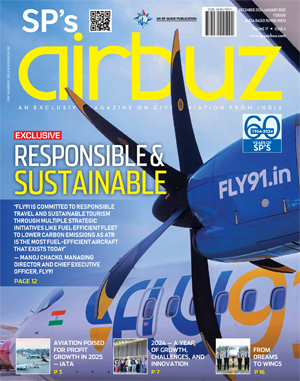A Matter of Relief

Ever since its promulgation, the 5/20 rule has been a subject of considerable debate in the aviation community. It is a matter of immense relief that finally there is evidence of some sanity in the attitude of the government towards the Indian airline industry.
The boom in the airline industry in India began in 2003 with Captain G.R. Gopinath in the lead, ushering in the era of low-cost carriers (LCC) through the launch of his airline Air Deccan. A number of other airlines that consisted both of LCCs and full service carriers emerged on the scene soon after, all eyeing the lucrative domestic and international markets. Unfortunately, their spirits were dampened, as in 2004 the Government of India promulgated fresh regulations stipulating that to operate in the international segment, domestic carriers would have to have a minimum fleet strength of 20 aircraft and should have operated for five years in the domestic segment. Some of the newly established airlines in India began operations with just five aeroplanes which was the minimum fleet strength required to start an airline.
As of today, Air India, Jet Airways, SpiceJet and IndiGo are the Indian carriers that fulfil the existing stipulations and have the licence to operate on the international segment. GoAir, though launched in 2005, is yet to achieve the minimum fleet strength required as per the regulations in vogue and for quite some time has been lobbying with the government for the relaxation of these provisions which has come to be known as the 5/20 rule. GoAir has a large number of aircraft on order and hence would in any case become eligible in the near future to commence operations on international routes.
Ever since its promulgation, the 5/20 rule has been a subject of considerable consternation for the affected airlines and debate in the aviation community. The newly established carriers view it as a restriction that is grossly unfair as it denies them a level playing field against other carriers such as Air India and Jet Airways that have been in existence for some years and inhibits improvement in their aircraft utilisation rate. Newly established Indian carriers or those waiting in the wings to be launched, are therefore placed at a serious disadvantage when pitted against foreign carriers that are not covered under this provision. Start-up carriers based abroad can commence operations to India soon after launch of operations even if equipped with just a single aeroplane.
The 5/20 rule proved to be particularly anomalous in the case of the state of Kerala that was desirous of establishing its own state-run airline with a view to exploit the potential of the high volume of passenger traffic between the state and the Middle East. This market has been exploited largely by foreign airlines and more particularly by the carriers based in the Middle East. The mandatory requirement of building up five years of operation in the domestic segment before the proposed state-run airline could hope to tap the market in the Middle East was a prospect that the government of the state of Kerala did not quite relish. The net result was that the proposal has not yet fructified.
As per Amber Dubey, Partner and Head (Aerospace and Defence), KPMG, the 5/20 rule is “anachronistic, discriminatory and anti-competition and that it actually works against the interest of Indian carriers. Scrapping of the rule will make the Indian aviation sector far more attractive and will restore the credibility of the Indian civil aviation sector helping it align with global best practices.”
But the greatest anomaly in the system is that the Minister of Civil Aviation Ajit Singh himself is not convinced about the necessity of having such a rule in the country. He informed the media that steps were under way at the Directorate General of Civil Aviation (DGCA) to reexamine the whole issue and make appropriate suggestions for the case to be put up before the Union Cabinet to scrap the 5/20 rule. Minister Ajit Singh is keen to have the issue resolved before the end of February 2014 or in any case before the election code comes into effect.
Move by the Ministry of Civil Aviation to scrap the 5/20 rule at this point in time will really be of no relevance for GoAir that is to induct the 20th aircraft by end February 2014. GoAir will then be eligible to operate on international routes. However, it will certainly benefit the two new airlines proposed to be established in the near future namely Tata-Singapore Airlines and AirAsia India. Both these joint venture airlines have promoters of high repute. The timing of the initiative on policy change does seem to indicate the degree of influence that these powerful entities have on the government.
Whatever be the case, it is a matter of immense relief that finally there is evidence of some sanity in the attitude of the government towards the Indian airline industry.





